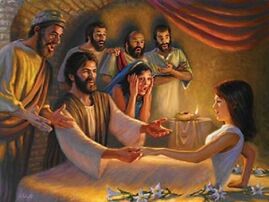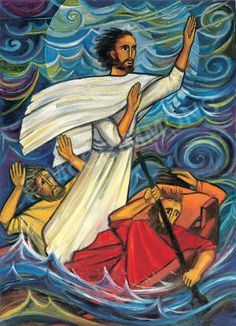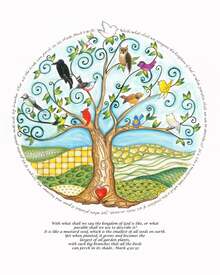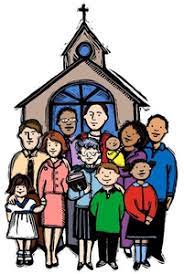
2 Cor. 8: 1-15; Mark 5: 21-43
13-year-old Long, a Cambodian girl, was kidnapped and sold into a brothel. When she rebelled, the brothel owner gouged out her eye with a metal rod.
Sunita, a young Indian bride, was held down on a cot by her father-in-law and brother-in-law, while her husband doused her with kerosene and set her on fire. She later died in the hospital of her wounds. The reason? Her in-laws were demanding a bigger dowry from her parents. Sunita was murdered over a refrigerator.
A 12-year-old girl was killed in an acid attack in Southern Afghanistan, because she befriended a 15-year-old boy (who was also killed).
A 12-year-old Yemeni girl died three days after her wedding night from acute bleeding.
12 year old Anisha was promised her in marriage to a Taliban fighter to pay a debt. She was handed over to his family who abused her and forced her to sleep in the stable with the animals. When she attempted to flee, she was caught and her nose and ears were hacked off by her husband as punishment.
These young girls are a reminder that, despite all the advances we have achieved, there are still in many parts of the world where girls and women still face extreme danger and prejudice. Violence and discrimination are still practiced and long standing.
Greek philosopher Aristotle 4th century BCE, following his ancient tradition, considered women ‘defective’ human beings. Christian writer, Tertullian, addressed women in the 2nd century: “You are the Devil's gateway; you are the unsealer of that tree; you are the first forsaker of the divine law; you are the one who persuaded him whom the Devil was not brave enough to approach!" Martin Luther wrote in the 16th century: “If they (women) become tired or even die, that does not matter. Let them die in childbirth. That is what they are there for.”
How different is today’s account of Jesus’ words and deeds toward women from these news reports, philosophers and church writers. Today’s story finds Jesus mobbed by a crowd. Pushing his way through to get to Jesus is the ruler of the synagogue, Jairus. Leaders of synagogues were not generally hospitable to Jesus. The leaders of Jesus’ home synagogue in Nazareth tried to push him off a cliff when he first preached there. At another synagogue in Galilee, (Luke 13:14), the leaders publicly rebuke Jesus for healing on the Sabbath a woman crippled for 18 years. We know from the gospel accounts that these rulers took an active role in having Jesus condemned to death.
But this ruler, Jairus, is unlike the rest -- his actions speak to us of a different possibility. Jairus is one of the few people who are named in Mark’s gospel who come to Jesus for help. His little girl, just 12 years old, on the cusp of adulthood, is dying. Should he go and publicly plead for a miracle from this man who associates with people he wouldn’t let in the doors of the synagogue? Should he put his reputation aside in a desperate effort to keep his little girl from dying? Jairus throws caution to the wind. He falls to Jesus’ feet – an act of submission -- he begs repeatedly to go to his home and lay his hands upon her. Jairus loves his daughter. He is willing to do anything for her. His actions on behalf of his little girl are heart-warming – even ahead of its time -- in a time when daughters were not valued as much as sons – a sign for sure of Jairus’ enlightenment.
Jesus goes with Jairus. But along the way Jesus is detained – by a woman with a flow of blood. She has been bleeding 12 years – since the time Jairus’ daughter was born, in fact. Unlike Jairus, she is unnamed. Jairus is well-to-do and influential, the woman with the hemorrhage is now impoverished – having spent all her money over the years seeking a cure. She is a social outcast – her flow of blood makes her ritually unclean, unable to touch anyone, or anything. The law stated clearly: “If a woman has a discharge of blood …she shall be unclean…. everything on which she sits shall be unclean. And whoever touches these things shall be unclean.” (Lev. 15:25). She has been deprived of human contact for 12 long years. Nearly half a lifetime, for a woman in Jesus’ day.
Then that fateful day happened: Jesus was walking to Jairus’ house, surrounded by a multitude. The bleeding woman faced a choice -- Should she risk exposing herself to ridicule and public condemnation for touching a man? Should she risk making Jesus ritually unclean?
This unclean woman is desperate and so she touches Jesus’ clothes, and at once is made well. And Jesus knows. Jesus stops -- demanding to know who touched his clothes. Why does he do this? Does he want to embarrass this poor woman? And the woman does come forward, in fear and trembling, and she too throws herself at Jesus’ feet. Jesus does not upbraid her. He doesn’t point out that she broke the law. Instead, Jesus praises her in front of everyone: he calls her daughter. Most people thought no doubt she was sick because of her sinfulness; Jesus praises her faith. Jesus sends her forth in peace healed of her disease.
All this time Jairus must have been in anguish. As this woman is healed, his daughter succumbs to her illness. Here was a woman, Jairus, who could never have come near the synagogue. Jairus, you were personally responsible to keep her out. And while Jesus is restoring her to life, your daughter loses hers. What a bitter experience. But Jesus addresses you, Jairus, his only words to you: “Do not fear, only believe.” Jairus, it’s time. Wake up.
Jesus perseveres and goes to Jairus’ house. Amid the wailing, and commotion and even the derisive laughing at Jesus, Jesus goes into the dead girl’s room, and takes her hand and says, Talitha cum -- Little girl, get up. This is one of the few phrases which remain in Jesus’ native tongue of Aramaic -- one of the few times the gospel writers records Jesus’ actual words. And the little girl gets up and began walking about.
In both stories, the little girl and bleeding woman are called daughters. They are loved. Both females are ritually unclean according to the law – which means cut off from human touch and community. But they weren’t cut off from Jesus. They weren’t cut off from a law of love. Jesus brings healing to a prominent man’s family. Jesus brings healing to an unknown isolated woman. There are no boundaries with love, not even death.
The Apostle Paul reminds us in his letter to the Galatians: ' There is no longer Jew or Greek, there is no longer slave nor free, there is no longer male nor female: for all of you - all of you - are one in Christ Jesus.' Only the practice of a love that restores wholeness to community, a love that restores us to life, matters. We all are equal in God's eyes, all equally loved by him, and all are welcome.
Today, Jesus tells us -- get up! How many little girls (and little boys) long to get up – from under what oppresses or hurts them?
As we follow Christ, we too say, Get up – to all the Longs sold into slavery and to brothels.
--Get Up-to all the Sunitas who die in dowry burnings.
-- we say Get Up to those young girls who are married before their time, and die from childbirth or from bleeding to death.
-- Get Up - to all the Anishas of the world—disfigured and cut off from education, and a dignified life.
-- Get Up to all the girls bullied, abused, trapped by unhealthy body images and poor self esteem,
– Get Up – Get Up -- to all of us – to be awakened to the power and mercy of God to transcend whatever walls we put up – to be awakened to the life God has in store for you, the peace of Christ within our grasp -- if we but dare to grab hold of the hand of Jesus, who will not let go. Amen



 RSS Feed
RSS Feed